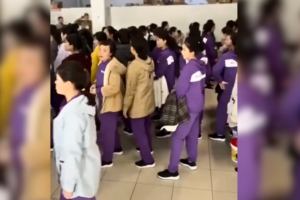That North Korea has black markets, which sprang up during famine of the 1990s and which continue to help supply the needs of the populace, is well-known.
Less-known, perhaps, is how this informal economy now extends to illicit activities the Pyongyang regime once monopolized, such as drug trafficking. A recently released report, published by the U.S. Committee for Human Rights in North Korea, highlights this development.
That North Korea has black markets, which sprang up during famine of the 1990s and which continue to help supply the needs of the populace, is well-known.
Less-known, perhaps, is how this informal economy now extends to illicit activities the Pyongyang regime once monopolized, such as drug trafficking. A recently released report, published by the U.S. Committee for Human Rights in North Korea, highlights this development.
Try unlimited access
Only $1 for four weeks
-
Unlimited access to all of NK News: reporting, investigations, analysis
-
Year-one discount if you continue past $1 trial period
-
The NK News Daily Update, an email newsletter to keep you in the loop
-
Searchable archive of all content, photo galleries, special columns
-
Contact NK News reporters with tips or requests for reporting
Get unlimited access to all NK News content, including original reporting, investigations, and analyses by our team of DPRK experts.
Subscribe
now
All major cards accepted. No commitments – you can cancel any time.










